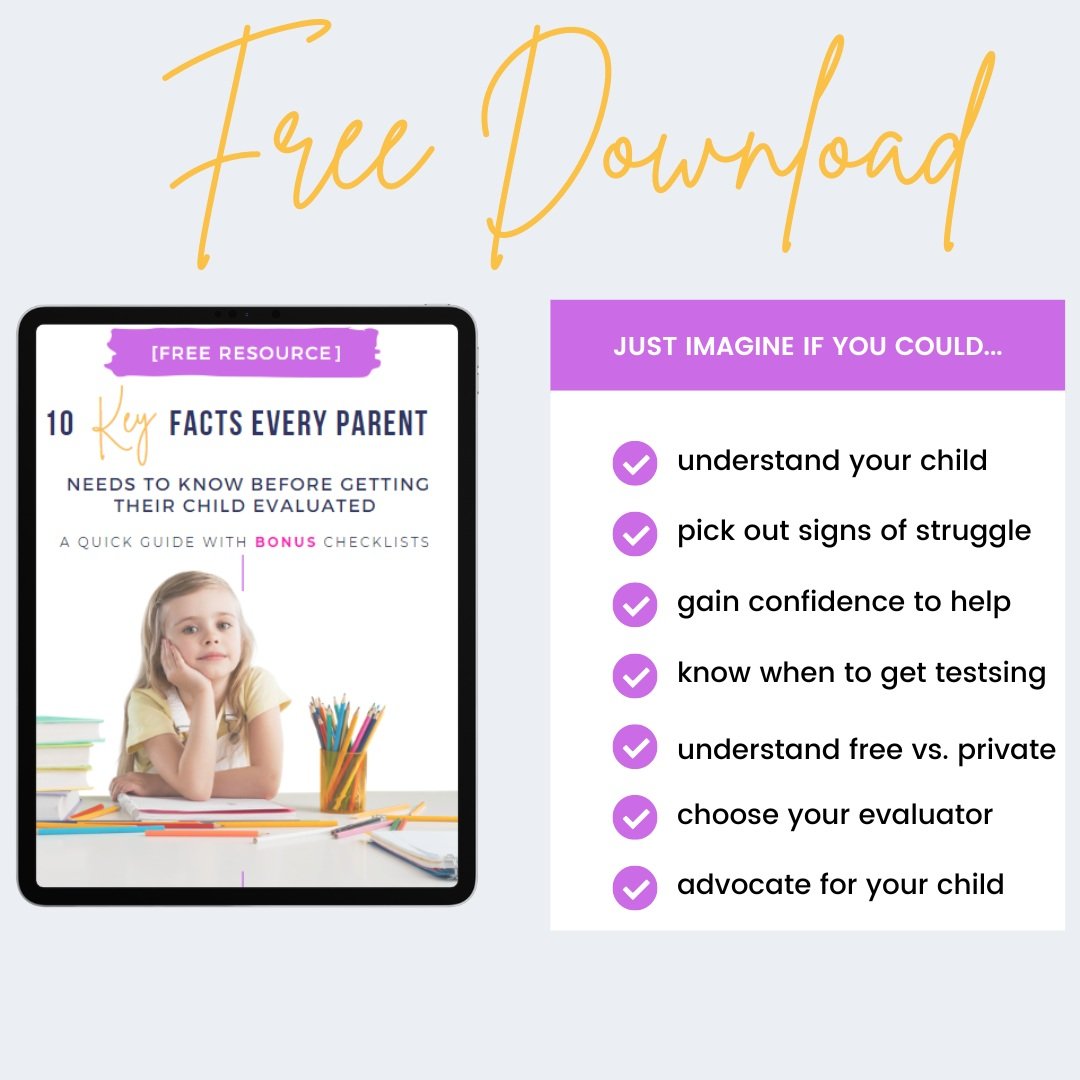What is an Evaluation: A Guide for Parents
As parents, witnessing your child struggle with learning can be both confusing and concerning. It's crucial to recognize that these challenges often stem from Specific Learning Disabilities (SLD), which affect how information is processed, not their intelligence or effort. This blog post aims to shed light on SLDs, their assessment, and how Clever Cogs Educational Testing Services approaches these challenges to support your child's learning journey.
What Are Specific Learning Disabilities?
SLDs are difficulties in processing information that can impact a child’s abilities in reading, writing, speaking, or calculating. These challenges, such as dyslexia or dyscalculia, arise from how the brain processes information, not from a lack of intelligence. Understanding the nature of these disabilities is the first step toward effective support.
What Is an Evaluation?
Sometimes called a Dyslexia Test, Testing, or Assessment, an evaluation is a comprehensive assessment process designed to understand your child's unique learning profile. It involves analyzing various aspects of their cognitive functioning, academic skills, and language abilities. Through this evaluation, we aim to identify any specific learning disabilities, understand their strengths and weaknesses, and provide a roadmap for tailored support and intervention strategies. This process is crucial for creating personalized plans that address your child’s specific needs and foster their academic and personal growth.
The Importance of Comprehensive Assessment
To support your child effectively, it’s vital to understand their unique learning profile. That's why we focus on three key areas:
Cognitive Processes: Beyond IQ, we assess how your child thinks, including attention, memory, and processing speed. This insight helps tailor support strategies.
Academic Skills: We evaluate your child’s reading, writing, and math skills to identify specific challenges and strengths, creating personalized learning plans.
Language Abilities: Assessing language skills is essential for diagnosing SLDs, and distinguishing between learning disabilities and other challenges.
Our Evaluation Process
Initial Consultation: We start with a conversation about your child’s needs, setting the foundation for a personalized evaluation.
Evaluation: A thorough assessment reveals your child’s cognitive and academic strengths and weaknesses.
Review Meeting: We discuss the results, offering insights and strategies for support.
Learn More About a Full Evaluation Here
Preparing for the Evaluation
Ensure your child is well-rested and comfortable.
Communicate openly about what to expect.
Document any questions for our review meeting.
What to Tell Your Child
There are no grades; it’s about understanding how they learn.
The goal is to make learning more enjoyable.
Everyone learns differently, and that’s okay.
It’s fine to say "I don't know."
Their willingness to participate is something to be proud of.
After the Evaluation
You'll receive a detailed report outlining your child’s learning profile, including diagnoses, strengths, weaknesses, and recommendations. This report is crucial for advocating for your child’s needs and setting the foundation for effective support at home and in educational settings.
Taking the Next Step
If you’re ready to explore a full evaluation, we're here to guide you through the process. For any questions or to start, please contact Kelli Heinemeier directly. We're committed to supporting you and your child every step of the way.
For more information or to schedule an initial consultation:
SCHEDULE a Call: Click HERE
Phone: 936-337-9446 (Text “TEST” and leave the rest to us)
Empower your child to shine in their learning journey with Clever Cogs Educational Testing Services.
Get the FREE Guide “10 KEY Facts Every Parent Needs to Know Before Getting Their Child Evaluated.”
Bonuses: Along with the guide, you'll receive valuable checklists for evaluating:
Hearing
Vision
Memory
Motor Skills
Sleep Quality
What to look for in an evaluator
These tools can help you identify potential underlying issues contributing to your child's learning difficulties and guide appropriate interventions.
